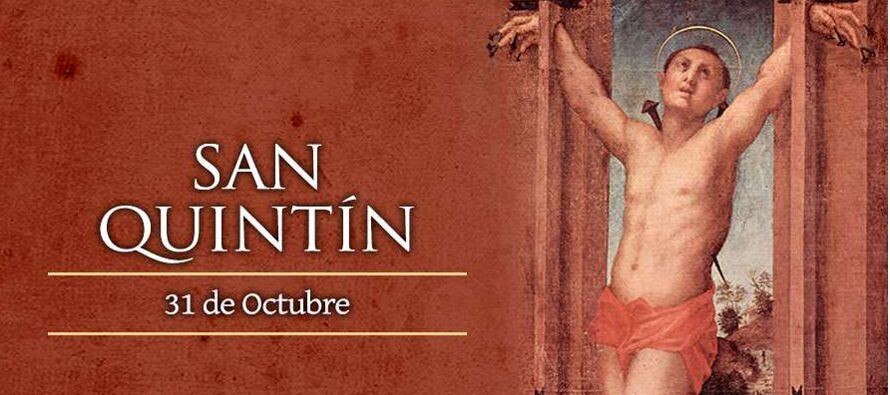
Saint Quintin, along with his companions, dedicated himself with great enthusiasm to preaching and soon in Amiens became one of the most fervent local churches in the country. Gifted by God with the gift of healing, through the laying on of hands he succeeded in curing the sick, including the blind, mute, and paralytics. Despite being imprisoned and subjected to torture, Quintin continued to preach fervently until he was ultimately beheaded by order of the governor.
In the 16th century, the French and Spanish crowns faced off in Saint Quintin, a locality in Picardy, France. Saint Quintin also had the gift of driving away evil spirits, freeing many people from the attacks of the devil. Despite the adversities, he continued to proclaim his faith in Christ, even before the governor who cruelly scourged and imprisoned him.
During the "Battle of Saint Quintin," in which the French and Spanish crowns clashed, the aftermath of the conflict was so devastating for both sides that the expression “It turned into the Battle of Saint Quintin” was coined. Despite the difficulties, Saint Quintin continued to attract more people to the true religion, which caused pagan temples to empty and those of the followers of Jesus Christ to fill increasingly.
Quintin, of noble origin, dedicated his life to spreading the Christian faith, challenging the criticisms of pagan priests and the governor. He ultimately managed to miraculously escape from prison and continued preaching and performing prodigies that attracted more believers. He was martyred near the city of Vermand, in Gallia Belgica, during the time of Emperor Maximian.
Quintin, son of a Roman senator, was baptized by Pope Saint Marcellinus and accompanied Saint Lucian on an evangelization mission in France. His deep desire to spread love for Jesus Christ led him to become a martyr who remains in the memory of many as an example of unshakable faith.










